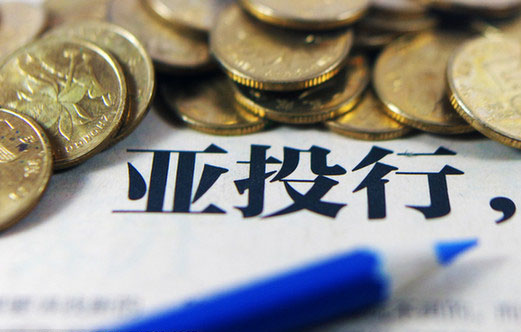Last October, China, India, Singapore and 18 other countries signed a memorandum for establishing an Asian Infrastructure Investment Bank. The initiative soon won widespread attention across the world.
On March 12th, the United Kingdom announced its application for the new institution’s originating membership, followed soon by France, Germany, Italy and Switzerland. On March 26th, the Republic of Korea, Turkey, and Australia also announced their intention to join the bank. The United States and Japan have been critical of the idea, though there were subtle changes in their attitudes recently. Chiefs of the World Bank and the International Monetary Fund overtly expressed their support and intention for cooperation.
Presently, Washington’s attitude of staying distant has thrown it into an unfavorable situation and drawn criticism domestically. Former World Bank President and U.S. Trade Representative Robert Zoellick said the U.S. government had served double faults in its policy towards the AIIB, adding that, “if I were still in the World Bank, I would accept AIIB for partnership.” U.S. top economist Fred Bergsten also argued that the U.S. should join the AIIB and cooperate with China with regard to the new organization. Former Goldman Sachs Asset Management chairman Jim O’Neill, known for coining BRIC, the acronym that stands for Brazil, Russia, India, and China, remarked that it was “stupid” and “awkward” for Washington to choose to stand against the AIIB. American think tanks and media critics also expressed similar opinions, saying that the U.S. should develop a correct understanding of the current world situation and stop regarding itself as infallible. Their advice for Washington: Only by participating in the new organization can you exert influence on it; staying in opposition will only serve to isolate yourself.
It was not coincidental for so many top thinkers to unanimously voice against Washington’s attitude on the AIIB. The fundamental reason behind the AIIB’s popularity is that it was the product of an expedited change of times and a historical change in international power balance. The “Asian century” calls for a fast and sustainable development of Asian countries, most of which are developing nations and newly arising economies. With a poor infrastructure they are generally in dire need of massive investment. Decades of growth have pushed China ahead of the pack in terms of infrastructure development. China now has enough resources to give a full play to its advantages in capital and technology. An investment bank for infrastructure construction meets China’s own needs as well as benefits other Asian participants. As for why developed nations also favor the new bank, the UK has stated frankly: “It is in our national interest.” They see it as a good opportunity and also hope to exercise influence over it. Therefore, the pressure from Washington is ignorable.
Though the situation is favorable, it is impossible that the AIIB will develop without risks and troubles.
Main controversies and worries are as follows:
The first is the argument is that China had tried to grant itself the right to veto in order to control the AIIB, turn it into a policy tool, and later gave up the attempt in exchange for more countries joining in. This is a groundless argument, the aim of which is to create an impression that China harbored a private motive to control the AIIB when it proposed the bank’s establishment. It is ridiculous for the U.S. to give such an early warning when the new bank has yet to announce its charter. For several decades the U.S. has been using its sole veto right to control the International Monetary Fund and is still taking it for granted. Now it blames China for the so-called control intent. It is not only an ironic double-standard approach but also a downright mean thought that “try to estimate what’s in the heart of the great with the heart of the mean,” as a Chinese idiom defines. In fact, Beijing has long indicated that once a large enough number of countries have joined in bringing abundant capital, China will dilute its committed share of investment. Joint consultation and common benefit: that is China’s “heart”.
The second controversy with the new bank is the “standard” the U.S. and Japan tried to impose on the AIIB. Washington remarked that the AIIB “must follow a high standard” while Tokyo stressed “the highest standard.” The “high standard” in the U.S.’ vocabulary is actually the “American standard.” Then what is “best?” Is the Asian Development Bank perfect enough to invalidate any need for reform? Even American and Japanese economists would not agree to these “standards.” In fact, there is no “best” standard in this world except “better” standards. Mr. Jin Liqun, chair of the AIIB preparatory committee, has said: “The AIIB will be an open, transparent and inclusive international institution that follows the motto of being effective, clean, and green. It will work to promote the development of green and low-carbon economy for a harmonious co-existence of man and nature.”
The third controversy is the worry over the eclectic membership. The fast growing of the membership – especially the participation of many developed countries – is certainly a welcome development. Developed nations’ experience in bank operation can help the AIIB avoid unnecessary detours in its development. But we should also refrain from expecting too much though we should not be affected by the groundless speculation – as some people have suggested – that certain countries could be Trojan horses. Anyhow, these countries have different pursuits from that of the developing countries. So we should learn the right way to be inclusive while shunning any possible hazard. Cooperation and win-win solution is the principle to follow.
The fourth dubious argument about the AIIB is that Beijing has won and Washington has lost the game. This allegation contradicts the facts and is very harmful. The Sino-U.S. relationship on the issue of AIIB is not a zero-sum game. There is also some subtle change in Washington’s attitude. A depute secretary of the US Treasury said recently that the U.S. would like to see the AIIB help strengthen the international financial structure. U.S. Secretary of Treasury Jacob Lew, special envoy of President Barack Obama, was in Beijing in the past few days to hold talks with Chinese leaders. Obviously his visit was related with the AIIB.
We hope that Washington is wise enough to get a correct understanding of the situation and cooperate with China for common benefits.


